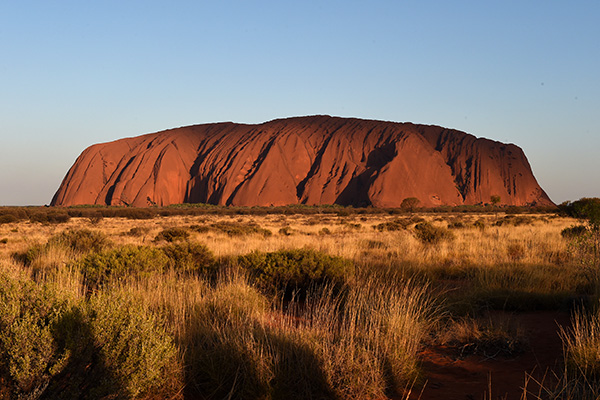‘Something all Australians should share in’: Campaign to reverse ban on climbing Uluru

A geologist is running a campaign to reverse the ban on climbing Uluru, saying there could be legal grounds to challenge it.
Last year, the Uluru-Kata Tjuta park board, primarily made up of traditional owners of the site, voted to stop people climbing the rock from October 2019.
At the time the board said the sacred site, previously known as Ayers Rock, wasn’t a “theme park or playground” to be enjoyed.
But Marc Hendrickx, who runs the Right to Climb Ayers Rock website, has lodged a complaint about the climbing ban to the Human Rights Commission.
He said the number of people wanting to climb Uluru has risen significantly since the change was announced, despite the board saying at the time less than 20 per cent of visitors actually wanted to climb it.
“I climbed in July with my two girls, mainly to give them the joy and wonder and awe of that experience,” he said.
When Mr Hendrickx climbed Uluru with his daughters, he left a log book on top. A month later, it was returned to him by park rangers.
“There were 2,500 names from over 30 countries,” he said.
If it is important enough for the local Indigenous community to say no don’t climb it, I am happy to go along with that – Neil Mitchell
He said there were possible grounds for a legal challenge.
“The issue for me is, this is a national park paid for by all Australians, and it should be something there that all Australians should share in,” he said.
“If it was run as a private park, I wouldn’t have an issue with the local traditional owners saying please don’t climb our rock.
“It’s there, I think, to be shared.”
Click PLAY to hear more on 3AW Mornings
Photo: AAP image















